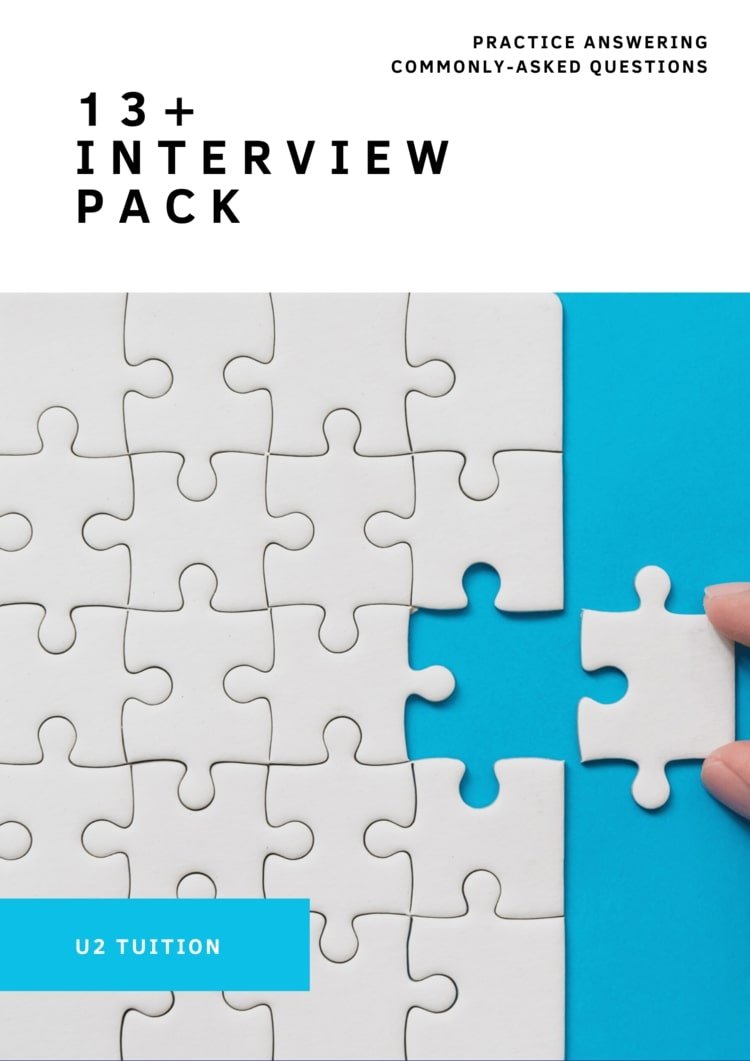A Comprehensive Guide to 13+ Winchester Admissions
Key Dates, Exam Guidance and More
Understanding Winchester 13+ Admissions
Winchester College, a prestigious all-boys boarding school up to Sixth Form, prides itself on a 600-year legacy of academic excellence. Founded by William of Wykeham in 1382, Winchester is one of the oldest boys' boarding schools in England and it is known for its rigorous academic standards. The school aims to offer an education that blends tradition with intellectual curiosity, challenging students to grow and develop as thinkers and members of society. Its alumni range from the likes of the Duke of Wellington to Anthony Trollope and Rishi Sunak.
As a result of this reputation, Winchester is a very popular school globally, and its admissions process is highly selective. In this blog, we’ll break down the Winchester 13+ admissions process, providing practical tips on exam prep, interviews, and subject-specific strategies to help your child succeed in securing a place.
Winchester 13+ Admissions: Key Dates
While around 400 boys apply for year 9 entry each year, only 140 are offered a place. For 13+ entry, here are the key Winchester admissions dates:
Registration deadline: Early July of Year 5.
Note that this means the deadline has already passed for 2025, 2026 and 2027 entry. The deadline for 2028 entry is 3rd July 2025. In Year 5, prior to registering potential students are invited to attend an open day at the school. After registering, they can visit up to two housemasters to get a feel for different houses in the house selection process.
ISEB Common Pre-test: October/November in Year 6
For guidance on the ISEB pre-test, see our dedicated blog post. References will also be requested from headteachers at this point.
Invitation to interview: January-March of Year 6
If successful at the ISEB pre-test, students will be invited to attend an interview during the Spring term.
Deadline to accept place: July of year 6
If offered a place after interview, parents must accept it by this point and pay the £1,000 acceptance fee.
Open morning for families who have accepted a place: January/February of Year 7
A morning of talks from the headmaster and members of Winchester’s senior team, as well as opportunities to meet your son’s future Housemaster and peers.
Scholarship Applications: November-January of Year 8
Students applying for sports, music or academic scholarships should review individual deadlines and procedure.
Entrance Exam: April/May of Year 8
Students sit the Winchester Entrance in a variety of KS3 subjects. Winchester Entrance is sat at their own school. The exam is designed to test and challenge students. Students sitting the Winchester Election exam instead (those after an academic scholarship) will sit the exam at Winchester. See our full breakdown of both the Winchester Entrance and Winchester Election exams and useful tips below.
Confirmation of place: June of Year 8
Confirmation of your son’s place will be sent out by email.
Winchester 13+ Entrance Exam Guidance and Tips
Students taking the Winchester 13+ Entrance Exam will sit an English and Maths paper. Students from prep schools will also sit papers in Science, Geography and History. If candidates have previously studied Latin and French in prep school, they are also expected to sit exams in these subjects. Alternatively, if they have studied Spanish or German rather than French, they can sit a paper in the alternative language. Candidates can also choose to sit the Greek paper. You can view the full specimens for each subject as well as sample papers, here.
English:
A 90 minute exam , worth 70 marks.
Candidates answer two questions, one from Section A and one from Section B
Questions test comprehension of a text, either poetry or prose, and writing skills (generally either imaginative or persuasive)
Tips:
Read, read, read
Students should read widely and make a glossary of new words. As the entrance exam devotes questions to testing student’s comprehension of vocabulary, they should also test themselves regularly on the new words they learn, making sure they are able to provide an accurate definition. You can find some great guidance for age-appropriate reading on the Sevenoaks Year 8 and Year 9 reading lists. These books are great springboards for building vocabulary and challenging students.
Get comfortable with poetry
Make sure your son spends time reading and engaging with poetry outside of the classroom. It’s important that candidates are confident engaging with poem and able to draw out and analyse poetic meaning.
Think about marks
The simple comprehension and vocabulary testing questions in the exam are only worth 1-2 marks. Students should make sure they devote their time in accordance and leave adequate time to respond to the longer questions in section A, testing their analysis skills, and the 30 mark writing skills question in Section B. The high level of marks for these questions suggests a need for a level of detail and enhanced responses.
Always leave time to check!
Marks are awarded for spelling, grammar and punctuation so make sure students leave enough time to go back and check their work for silly mistakes!
Maths:
90 minute exam, worth 100 marks.
Non-calculator
The Maths paper is meant to be challenging. To get over 60 marks in the paper is to have done well, so students shouldn’t panic if they don’t finish.
Generally covers 11 plus curriculum but does handle some more challenging topics, including simple algebra.
Tips:
Presentation counts
Winchester emphasise the importance of clearly laid out answers and claim there is a correlation between the layout of his responses to the first two questions in the paper and his overall score. Students should make sure they learn to present their workings clearly. Winchester values good habits as a basis for the learning they will go on to provide.
Stay away from calculators
Winchester steers students away from calculators in the first year and encourages students to develop a good mental arithmetic foundation in preparation for the exam, avoiding any dependence on calculators. Students should get used to mental arithmetic and looking for ways to simplify questions.
Take your time when practising
While it can be tempting to practise lots of questions under timed conditions, it’s important that candidates sitting the Winchester maths paper learn to spend time sitting with challenging questions and trying different approaches. This is ultimately the best way to prepare the problem-solving skills required to do well in the exam.
Don’t be thrown by algebra
Winchester does not expect students to have a thorough understanding of algebra. There will be some simple algebra questions in the exam but these can often be solved by shortcuts. Get used to spotting these and finding ways to simplify the question.
Read the question carefully.
Lots of questions are word problems so make sure students take time to read the question carefully and understand what it is asking you to do. These questions often require steps, so even if students don’t reach the right final answer, they may still receive marks for correct steps. This is another reason why showing workings is important!
Science:
The Science paper is split into three sections: Biology, Chemistry and Maths.
Students can use a calculator
The subject content is the same as the ISEB Common Entrance 13+
Tips:
While the content of the exam is in line with the ISEB CE, questions may require students to apply their knowledge and understanding of scientific principles and theories to unfamiliar content. It’s important not to panic if a question feels unfamiliar. Students should work to apply what they know.
In the exam, candidates may be introduced to new ideas and content with an explanation. It’s important they understand this information and apply it to other questions as asked.
Make sure you give answers to the correct number of significant figures!
French:
The French exam has four components: writing, reading, listening and speaking.
Tips:
Students should spend time consolidating grammar in advance of the exam and ensuring they are confident with foundational grammar. The writing exam has exercises designed to test students’ grammar skills, including conjugation exercises.
It’s important students don’t just hide behind simple structures and vocabulary. They should aim to use ambitious language structures they feel confident about. It can be useful to learn and memorise a few useful complex phrases before the exam for this reason. This is particularly important for the writing exam and for the oral exam, where a good candidate will find ways to add detail to his answers.
Looking for support with Winchester 13+ admissions?
Working with a Winchester 13+ tutor takes the stress off your shoulders by providing expert guidance through every step of the admissions process.
Tutors ensure that your child is fully prepared for each exam, creating a structured and focused plan to strengthen subject knowledge and exam technique. Beyond exam prep, tutors also help improve interview performance, offering tailored strategies and mock interview practice to build confidence and communication skills.
By working with one of U2 Tuition’s Winchester 13+ tutors, specialising in Winchester admissions, you can feel reassured that your child is receiving personalised support to excel in the exams and interviews.
Find out more about the 13+ tutoring services we offer here.
History:
1h15 exam, with 15 minutes to analyse the sources before the exam.
Students answer all questions in Section A and one in Section B. Section A focuses on source analysis and Section B gives students the opportunity to respond with their own knowledge to an open historical question, e.g. How might historians use works of art to develop their understanding of the past?
Tips:
Get confident with source analysis
Think about what they can learn from the content of the source, bring in the provenance if relevant to the value of the source as evidence. Candidates should make sure they can write clearly and confidently about what a source shows, as well as compare and contrast different historical sources
Craft a compelling argument
In the essay question in Section B, top responses will have a strong, clear argument, including historical evidence to back up and support ideas. This means honing essay technique, staying relevant to the question and being concise yet emphatic in making points.
Geography:
1 hour exam, with a calculator, protractor and ruler allowed
The exam tests students knowledge and understanding of geographical concepts, including knowing lines of longitude and latitude, equator, tropics, Arctic and Antarctic Circles.
In Section B, students have to answer two sections out of the following; Tectonic Processes; Weather and Climate; Rivers and Coasts. In Section C, students answer on one of the following: Population and Settlement or Economic Processes.
The paper is designed so that both students on the CE syllabus and on the National KS3 curriculum will be able to answer all questions.
For an in-depth breakdown of each subject specification, and to access sample and Winchester past papers, visit the Winchester admissions page.
Advice for the Winchester 13+ Election Exam
The vast majority of candidates will sit the Winchester Entrance Exam, not the Winchester Election. Only exceptionally bright candidates will be invited to sit the Winchester Election instead of the Winchester Entrance exam. If successful, they will be awarded an academic scholarship, an exhibition or a headmaster’s nomination.
Those sitting Winchester Election will take English, Maths 1, Science and General Paper 1 (a multiple choice, logic reasoning test). They then choose three further papers from:
Latin
French
Greek
History
Geography
Mathematics II
General Paper II
Election papers are designed to cover KS3 knowledge, not just the 11+ curriculum and should stretch and challenge all students. You can view the Election sample papers here.
Students who are aiming to apply for Election should be performing beyond their age level - students therefore need to ensure they are stretching beyond the syllabus, pushing beyond the National Curriculum requirements for their age. U2 Tuition has 13+ tutors who are exceptional at advancing students’ level to that required by the Election papers.
Winchester Admissions: 13+ Interview Tips
The interview is an important part of the Winchester admissions process. Unusually, candidates are interviewed before they sit the 13+ entrance exams and therefore the interview determines whether candidates reach the entrance exam stage or not. For a strong interview performance, candidates should…
Show curiosity: Winchester emphasises the importance of approaching all learning with curiosity, and even has a whole programme of exam-free exploration called “Div”, designed to expand students’ knowledge in a range of cross-curriculum areas. It’s therefore important that candidates showcase their own enthusiasm for learning at interview.
Make lots of time to practise: Interviews can feel intimidating but by practising common 13+ interview questions and building familiarity with the interview format, students can grow in confidence and strengthen their interview performance.
Working with a tutor to prepare for Winchester 13+ interviews is a great strategy to ensure students feel confident and prepared for their interview. A tutor can simulate the interview environment, offer tips and advice as well as preparatory resources to enhance performance and teach crucial interview skills. Find out more, here.
U2 has curated an in-depth 13+ interview guide and a bank of 13+ questions, ideal to practise with your child and prepare them for a Winchester interview.
Looking for a Winchester 13+ Tutor to support your Winchester Application?
A tutor can provide invaluable support for students preparing for the Winchester 13+ Entrance Exams. By developing a tailored study plan that targets key areas of the exam, including creating subject-specific supplementary resources targeted to areas such as vocabulary building, mental arithmetic and problem-solving.
U2’s team of Winchester Admissions tutors are all Oxbridge graduates, many of whom attended Winchester themselves, making them familiar with the rigorous entrance requirements. Tutors encourage students, building their confidence and ensuring they are well-prepared in all areas in advance of the exam. With comprehensive, targeted feedback, tutors help students understand and meet the exam requirements and score highly on their exam technique.
At U2 Tuition, after an initial consultation to discuss your child’s needs and goals, you will be matched with a tutor specialising in Winchester Admissions. We recommend starting this process as early as possible to ensure your child has adequate preparation for all areas of the application process, including the ISEB pre-test. However, U2’s tuition is on your terms and designed to suit your needs, both online and in-person.
Book a free initial consultation now to find out more about how our tutors can support you and your child through the Winchester admissions process.






